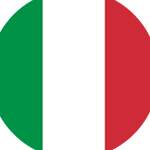Italy became a member of the International Bank for Reconstruction and Development — the World Bank — in 1947. Italy was among the first countries to get a loan to help rebuild its economy after the Second World War. Today, Italy is a member of the five institutions that form the World Bank Group. Italy and the World Bank work with other member governments to finance projects, design policies, and deliver programs to eradicate poverty in the developing world.
Overview
A Gateway to Knowledge and Innovation for the Mediterranean and Sub-Saharan Africa
The World Bank Group (WBG) Office in Rome serves the WBG’s External and Corporate Relations (ECR) function across Southern Europe. This office plays a crucial role in steering discussions and collaborations with Southern European member countries, including Italy, Spain, Greece, Portugal, and Cyprus.
The WBG Rome Office also serves as a Knowledge Hub for the Mediterranean and Sub-Saharan Africa in support of the World Bank Group’s strategic vision to become a Knowledge Bank. The Office leverages the expertise of the Rome Center for Development Data (C4D2), the newly established World Bank Group Institute for Economic Development, the Social Protection and Jobs Core Learning and Solutions Services (SPJ-CLASS), and the Sustainable Development Team. This collaborative effort involves key Italian and Southern European stakeholders, academia, and major relevant stakeholders, setting a new standard for knowledge exchange and development impact in the region.
The Office also leads engaging dialogues with Rome-based United Nations organizations such as the Food and Agriculture Organization (FAO), the International Fund for Agricultural Development (IFAD), the World Food Programme (WFP), and the Holy See. These interactions facilitate a cohesive approach to addressing regional developmental challenges.
Through these initiatives, the Rome Office is not only a bridge to Southern Europe but also a beacon of innovation and knowledge-sharing for tackling global development challenges. This office is set to play a pivotal role in shaping a sustainable and prosperous future for the Mediterranean and Sub-Saharan Africa.
World Bank Governor
The World Bank Governor represents Italy on the World Bank Board of Governors, the Bank’s senior decision-making body. The Governors, usually Ministers of Finance or Development, meet twice a year. The Governors have the power to admit and suspend members of the World Bank Group, increase or decrease the authorized capital stock, determine the distribution of the net income of the Bank, and decide on the World Bank Group’s overall strategic direction.
To connect with the current governors and alternate governors offices, please refer to this document.
World Bank Executive Director
The Governor Delegates responsibility for overseeing the day-to-day business of Italy’s interests at the Bank to the Executive Director (ED) for Italy. EDs reside in Washington and normally meet twice a week to decide on borrowing and financial questions, projects, and policies that impact World Bank Group general operations. Italy's Executive Director also represents Albania, Greece, Portugal, San Marino, Timor-Leste, and Malta. Matteo Bugamelli is the current ED for Italy on the 25-member World Bank Board of Executive Directors, and Miguel Coelho of Portugal is the Alternate Executive Director.
Shares and Voting Power
The World Bank Group has a weighted system of voting. All members of the Bank receive votes consisting of share votes (one vote for each share of the Bank's capital stock held by the member) plus basic votes (calculated so that the sum of all basic votes is equal to 5.55% of the sum of basic votes and share votes for all members). The voting power distribution differs from agency to agency within the World Bank Group.
For the latest voting status, please visit the Voting Powers page.
Additional Resources
Contacts
Fax: +39 06 777 10 246
Via Abruzzi 10, Rome 00187, Italy
Fax: +39 06 777 10 246

